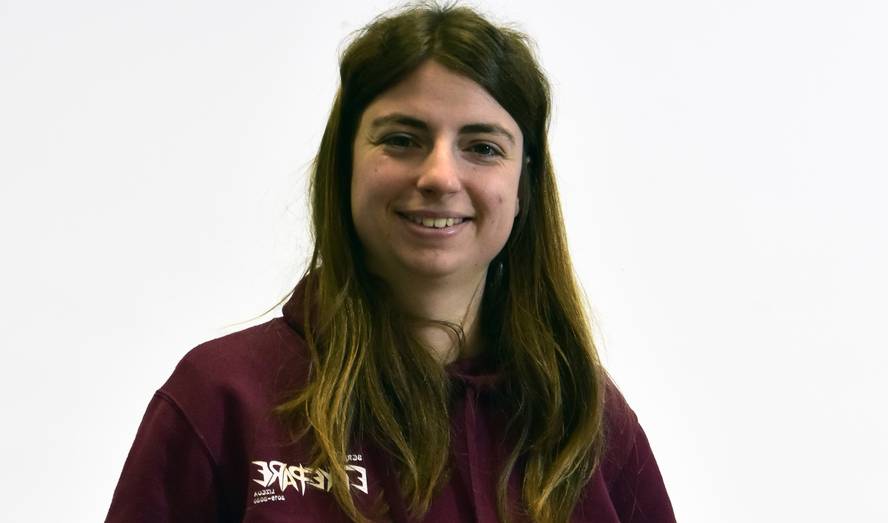"In research there will always be a way forward"
Oihane Cantero Dominguez works in the field of fashion: artificial intelligence. In particular, it is researching at the Orai Research Centre, a Elhuyar working space specialising in higher research and technological solutions of natural language processing.
Her career as an AI researcher seems almost inevitable. “I’m from Hendaia and all the initial studies I’ve done in SEASKA. In the last year, we've been asked what we want to do with our lives. I had no idea, like many others, but it was clear that I wanted to learn Basque. To do so, I had to come south, and because I didn't want to go far from home, I looked at what was in Donostia. There was a bachelor's degree in computer science, and I was interested. I went to try a little bit and learned how to program there, and I liked it."
As he pointed out, he knew nothing about programming before, even though his father is a computer and a profession. "Programming has a different way of thinking, it's another logic, things are visualized differently, and all that seemed interesting and attractive to me," he added.
In the fourth year, he learned something about artificial intelligence, and when he took the master's degree, there were two options: one about language processing and the other about artificial intelligence. As the latter was in Spanish, and again driven by the passion for the Basque Country, he chose the first one, although it was in English: "It is true that in the fourth year we gave things about language processing, and I was very interested," Cantero admitted to his Twitter account. Research in this field is linked to artificial intelligence, and so it's come to work in Orain.
In fact, Orai investigates in two major areas: text and speech. Cantero has stated that he has been in the two since the beginning and has worked on the end of the Master's Degree in the textual field, trying to adapt the linguistic models to the Basque culture, which has a great void. "In addition, to get good results, we have had to do all the experiments in English, as there is still no model in Basque," he has also worked in the field of speech, with personalized assistants, and is about to start with voice synthesis.
Opportunities, risks, gaps and hope
There's no question that artificial intelligence tools are powerful, but they also have risks. "That's why you need to be able to take the advantages of the tool and put the necessary measures to minimize the risk. We have to be careful not to normalize too much, we have to look critically, that is, we know that this instrument has this problem, we are not going to leave it that way, and we are going to try to solve it." Cantero has worked on it to correct the cultural biases of artificial intelligence.
You also mentioned other biases, such as those relating to gender and race. And in artificial intelligence studies, the gender gap is also evident. Cantero assured that she went to college without prejudice, but that in the informatics degree men were the majority. Then, in the master's, thanks to the women who came from linguistics, he balanced himself. Now, in the report, women are found again in the minority.
Faced with the question of what can be done to bridge this gap, he answers quickly: "There's one way: hire more women." It is clear that more women are needed, starting with studies. "There are female students, but they are less, so that may be why you have to start solving it." More IT women can also help encourage women to study.
From now on, he hopes to continue working with artificial intelligence. It also provides for the possibility of changing the way of working; for example, language models are able to create codes, so they may move from the creation of codes to correction. But look with enthusiasm and openness to what is coming: "In research there will always be a way forward."







